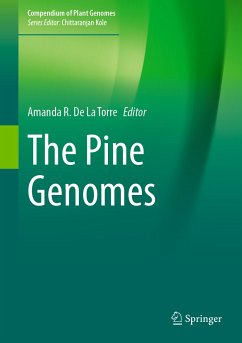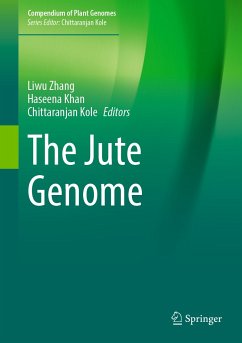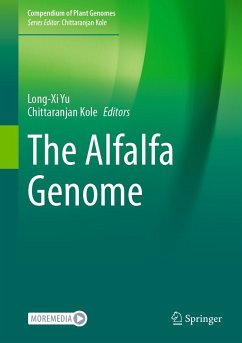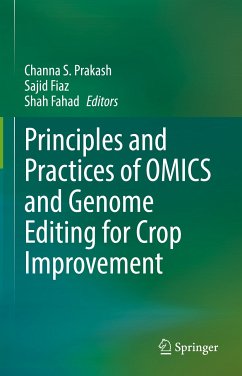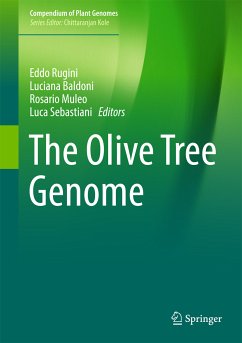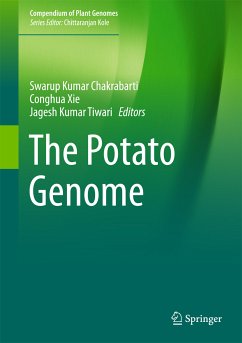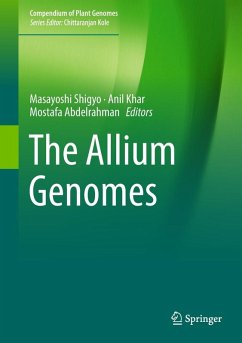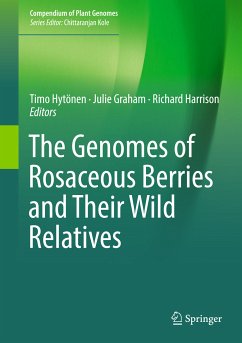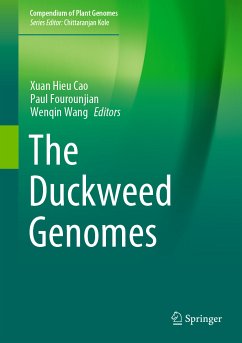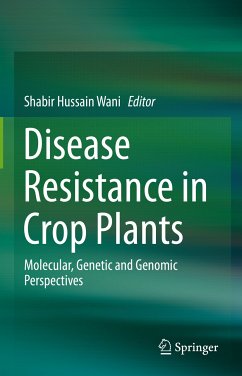
Underutilised Crop Genomes (eBook, PDF)
Versandkostenfrei!
Sofort per Download lieferbar
96,95 €
inkl. MwSt.
Weitere Ausgaben:

PAYBACK Punkte
48 °P sammeln!
This book highlights the uses for underutilized crops, presenting the state-of-the-art in terms of genome sequencing for over 30 crops, previously understudied and under-researched. In a changing climate and with significant pressure on the land, it is the ideal time to be discussing novel crops, with significant biotic and abiotic tolerances and/or rich nutrient profiles for consumers. Previously, the only species with sequenced genomes were high-profile internationally recognized crops, but in the current era genomes are being sequenced for dozens of crops, including those previously classif...
This book highlights the uses for underutilized crops, presenting the state-of-the-art in terms of genome sequencing for over 30 crops, previously understudied and under-researched. In a changing climate and with significant pressure on the land, it is the ideal time to be discussing novel crops, with significant biotic and abiotic tolerances and/or rich nutrient profiles for consumers. Previously, the only species with sequenced genomes were high-profile internationally recognized crops, but in the current era genomes are being sequenced for dozens of crops, including those previously classified as underutilized, now being investigated. This book covers food crops, from fruits to tubers, and from grasses to legumes, as well as crops with non-food applications. Some of these crops have draft genomes, and others have polished genomes with extensive resequencing panels. Each chapter tells the story of an individual crop or crop group, written by experts, focusing on thegenome data available, revealing more about crop domestication and genetic variation, and the current and future prospects given that this data is now becoming available. It also highlights how even small sequencing projects can provide draft genome sequences suitable for gene discovery, comparative genomics, and identification of molecular markers for understanding these crops further.
Dieser Download kann aus rechtlichen Gründen nur mit Rechnungsadresse in A, B, BG, CY, CZ, D, DK, EW, E, FIN, F, GR, HR, H, IRL, I, LT, L, LR, M, NL, PL, P, R, S, SLO, SK ausgeliefert werden.



